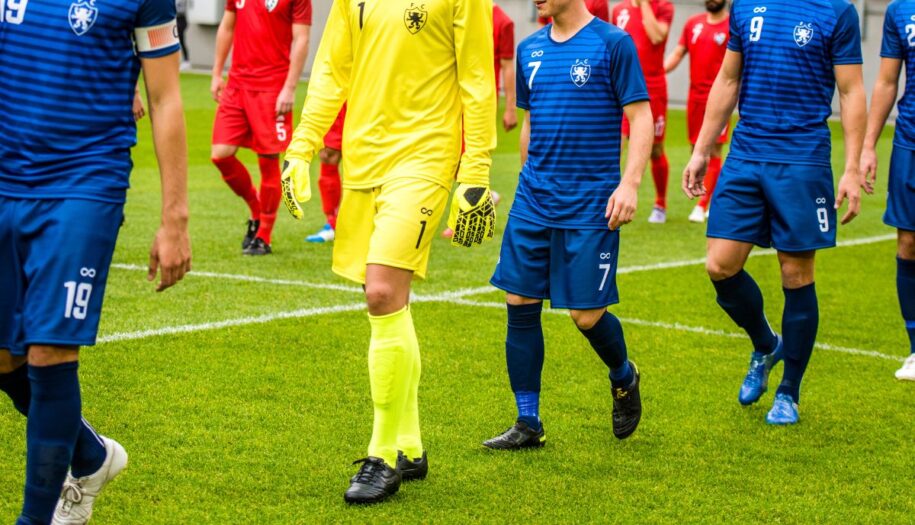
There’s no question that people in some towns, cities, counties and states are far more protected than those in others. How much do you know about who pays for state troopers at football games? What about which states and cities invest most heavily in their police forces? We’ve assembled this info-graphic to help give you an overview of who pays for state troopers at football games, One of the most common questions college football fans ask when police officers are present at their football games is who pays for them? And many don’t realize it’s not just state troopers who are providing this service, as local police officers and federal law enforcement officials may also be present at the game. In fact, according to the United States Department of Justice, the presence of law enforcement officials at sporting events has increased during the past decade due to concerns about terrorism and security.
Who Pays For State Troopers At Football Games?
The question Who Pays For State Troopers At Football Games? is an interesting one. It’s a complicated issue and I’m not sure if there’s a definitive answer. One could look at who benefits from the game to determine who should pay for the police presence.
The players, teams, and university all benefit from the game so they may be responsible for paying for the police presence. The spectators gain entertainment value from the game so they may also be responsible for paying. Lastly, business owners are given the opportunity to make money on concessions during the game so they might be responsible as well. In conclusion, it’s hard to say exactly who pays for state troopers at football games but it is likely that each party involved has some responsibility in doing so.
How Much Do They Cost?
Estimating the cost of a single trooper can be difficult, but it is not unreasonable to assume that each one costs about $1,000 per game. That number may seem high, but consider the following:
- The officer will spend about 6 hours at the game.
- Costs include 6 hours of overtime pay and other expenses such as gas and food. -At most, there are 2 officers present in an 8-hour period. -They’ll also need two days off after the game for recovery.
- Consequently, we can expect that 2 officers would work 4 days straight (including weekends) before seeing any time off from this job.
- Add up all those expenses and you get to a total of about $10,000 per weekend day which totals to around $36k/year for just 1 person.
What Do They Do?
State police officers are hired to work security at sporting events. The decision of whether or not to assign these officers to an event is made by the highest-ranking officer in the department’s area. If an officer is assigned, their salary and overtime pay are paid by the home team that they’re working for. But if an officer isn’t assigned, taxpayers foot the bill. In some cases, a state police department may charge the home team a fee for police service, but this isn’t standard practice. The cost of paying a trooper to work at a game typically runs around $150 per hour with another $120 per hour going towards administrative duties.
Because it is difficult to determine how many hours will be needed until after the game has been scheduled, departments have come up with other ways of determining costs when estimating expenses. One way is using mileage rates: one mile driven by an officer during duty counts as three hours of pay time.
Why Are They There?
There are many reasons why they might be there, but the most common one is that they want to make sure the environment remains safe. They want to keep people from fighting in the stands and ensure no one throws any drinks or other items onto the field. They also assist with traffic control when needed and help people get out of the parking lot after a game is over. If a trooper does see something happening, such as someone throwing something on to the field, he or she can arrest that person on site and have them taken in to law enforcement custody. They know they’re being watched by many cameras around the stadium so it only takes one bad act for them not to receive another invitation back again. on charges of disorderly conduct and failure to obey a police officer. It’s just an hour before kickoff time and you’re making your way through campus; you don’t have time to stop for gas because you need to make your tailgate. As soon as you pull up, however, your car goes dead. Your battery must be dead! You’ve been getting those strange clicks all day too…you start walking across campus towards the nearest gas station which will take at least 10 minutes – maybe 15 if there’s a long line-up – but now you realize this is going to really cut into your tailgating time! At least the electric chair has an outlet in the driver’s seat. (laughter)
Are They Effective?
State troopers are an important part of the big game experience. They keep you safe, help you get to your seat and make sure traffic flows smoothly. But who pays for them? The taxpayers do! State police is a government agency that operates on tax dollars. So when you’re enjoying the game, remember to thank the state trooper standing by your seat with a smile. Without him or her, the event would not be as enjoyable. When he or she isn’t patrolling during the game, they could also be enforcing other laws and maintaining public safety.
have sworn to protect us; if you have ever been in need of their service they were there with a calm demeanor to help resolve the situation swiftly and without harm.
The cost goes beyond simply paying the officers salary though – overtime costs can skyrocket during this time because of increased staffing needs like directing traffic before and after each half-time show.
So every time someone leaves before half-time is finished, it’s costing our taxpayers even more money than if they had stayed until halftime was over!
Conclusion
In the end, it’s hard to say who does and doesn’t pay for a trooper’s presence at a football game. The school may pay if they’re hosting the game, but if the police department is providing security then taxpayers will likely cover the costs. We may never know how much this practice costs us because of how many different variables there are. For now, we’ll have to rely on anecdotal evidence and hope that some day soon we’ll see a definitive answer. The debate surrounding whether or not schools should provide their own security or whether the government should foot the bill goes back decades. Schools across the country employ their own in-house police forces or utilize outside law enforcement agencies to handle incidents.
On one hand, it seems logical for schools with high crime rates and issues with violence at school events like sporting events would benefit from having armed guards present.








